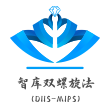Integrating the impacts of ecosystem services supply-demand relationship into the SDGs implementation framework: evidence from the Belt and Road Initiative region
Document Type
Research-Article
Journal Name
Resources, Conservation and Recycling
Keywords
Belt and Road initiative, Ecosystem services supply-demand, Interactions, Spatiotemporal heterogeneity, Sustainable development goals
Abstract
Ignoring the impact of ecosystem service (ES) demand and ES supply-demand relationship (ESSDR) on the Sustainable Development Goals (SDGs) may affect the equitable and rational allocation of resources and the SDGs agenda. By coupling multiple models, we find that soil conservation ESSDR has lower coupling coordination with SDGs (especially economic SDGs) than other ESs in the Belt and Road Initiative (BRI) region. Food production and soil conservation have negative impacts on total SDGs in 73.44 % and 62.5 % of the countries, respectively, while carbon sequestration and water production have positive impacts in 87.5 % and 57.81 % of the countries, respectively. The heterogeneity may either converge or expand over time. The ESSDR has the most significant impact on environmental SDGs, with an explanatory power exceeding 70 % and being time-dependent. The findings emphasize integrating the impacts of ESSDR into the framework of SDGs implementation in the BRI region and globally to prioritize policy actions. © 2025 Elsevier B.V.
Recommended Citation
Chen, Shaofeng
(2025)
"Integrating the impacts of ecosystem services supply-demand relationship into the SDGs implementation framework: evidence from the Belt and Road Initiative region,"
Double Helix Methodology: Vol. 6:
Iss.
6, Article 11.
Available at:
https://diis-mips.researchcommons.org/helix-content/vol6/iss6/11

